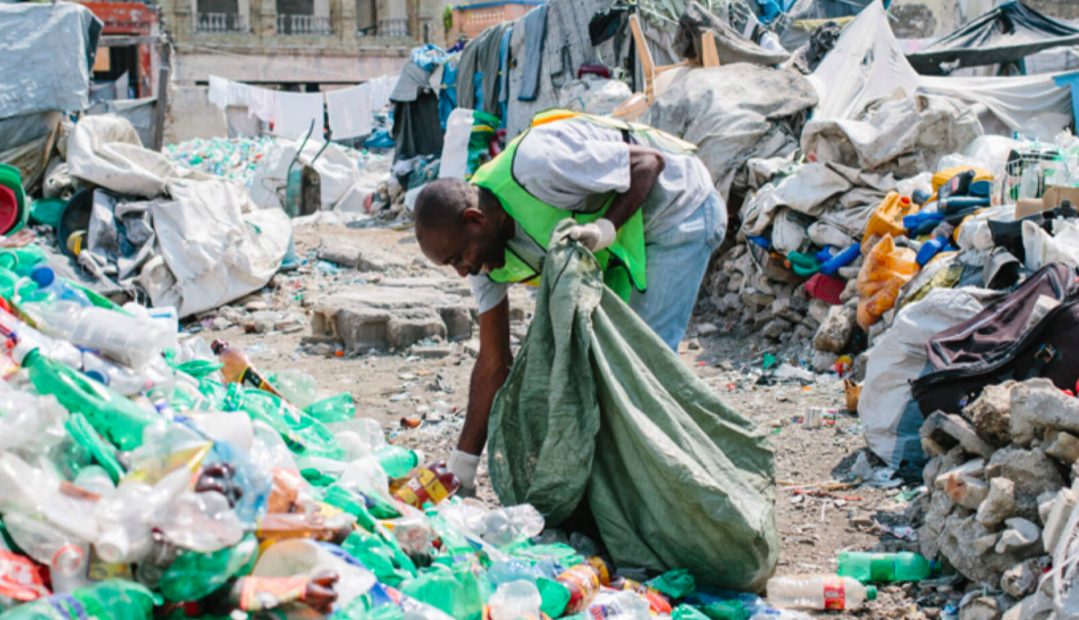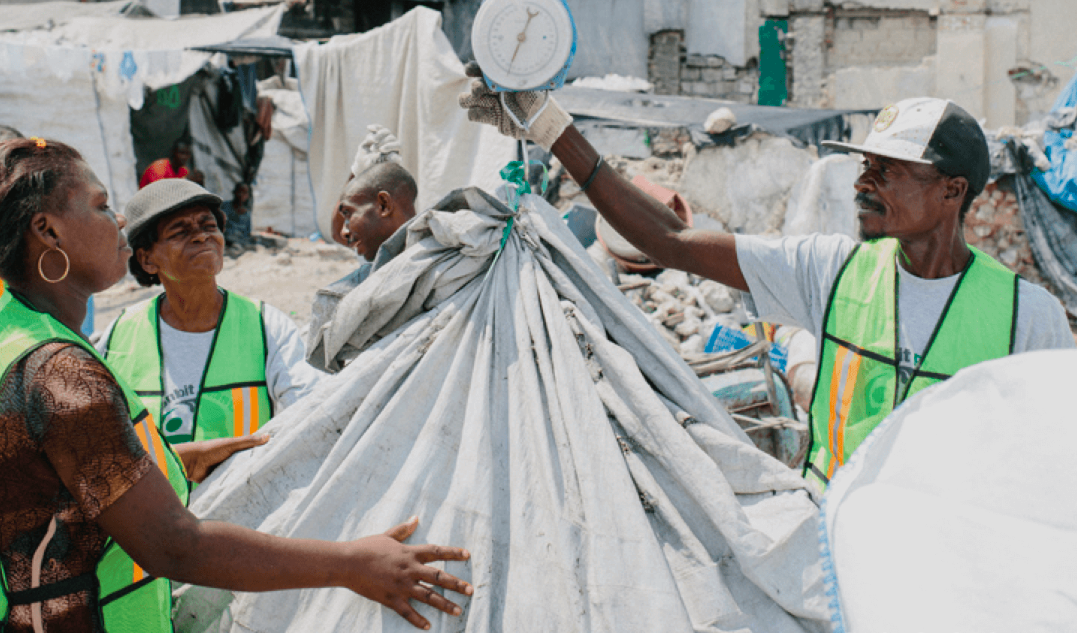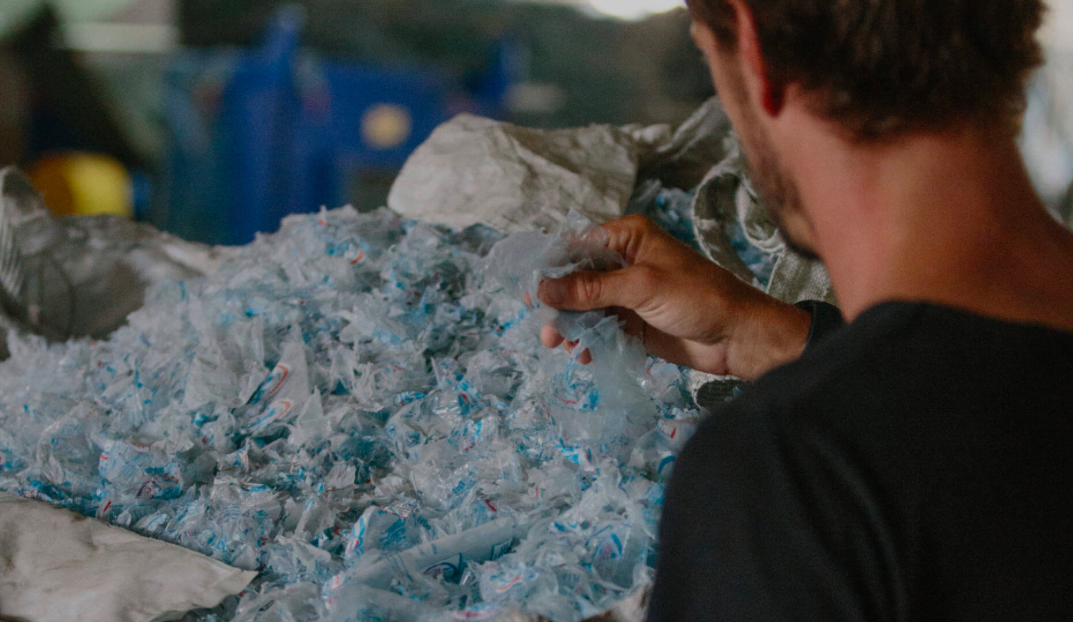In the US, recycling a few dozen plastic bottles will get you a few dollars. In Haiti, recycling plastic bottles could send your kid to school. Or heat your home. Or get you some cooking oil.
For one of the poorest countries in the world, recycling plastic has become synonymous with tackling poverty, according to the United Nations.
And it’s helping to kickstart a revolution of sustainability.
Take Action: Recycle 3 Pieces of Plastic When You Go the Beach
This particular revolution started when a company called the Plastic Bank began testing a new model of social commerce in Haiti in 2015, according to Forbes.
The premise is simple. Locals are incentivized to collect plastic waste in exchange for income and other benefits such as cooking oil, heating oil, school tuition, and more.
After bringing plastic to a recycling center that’s managed by a local entrepreneur and staffed by local employees, people receive payments on a mobile Blockchain app that they can then use toward goods. This method is used because it’s more secure and can be better monitored by Plastic Bank to ensure accurate payments, according to the company.

The recycling centers then turn the plastic waste into pellets that are sold to multinational brands that repurpose the pellets into products. Over the past several years, growing demand for plastic pellets of this kind has greatly expanded the market potential for recyclers.
Some companies, such as Dell, are directly involved in cleaning up plastic waste and generating reusable pellets. The computer company has a machine situated in Haiti that could collect 8,000 kilograms of plastic this year from beaches, according to the New Scientist.
Read More: Shocking Photos Show Extent of Plastic Pollution in Caribbean
Local people managing the Plastic Bank recycling centers can earn up to $3,000 a year after paying employees and other expenses, an impressive income boost in a country where two-thirds of people live on less than $2 a day, according to Borgen Magazine. The Plastic Bank also teaches entrepreneurs about financial literacy and accounting.
Global Citizen campaigns to end of extreme poverty by 2030 and you can take action on this issue here.
More than 30 recycling centers have been set up so far, according to Forbes, and more than 3,500 people are involved in collecting plastic, which is helping to clean up local environments.
Haiti, like many countries in the world, faces severe plastic pollution. This is worsened by the lack of a reliable waste management system, according to the UN, which recently gave the Plastic Bank a Climate Solutions Award.
Throughout the country, plastic is often burned or disposed of in waterways, the UN notes. Burning plastic releases toxins harmful to humans. When plastic enters waterways, meanwhile, the problems are numerous — marine animals and birds can ingest and become poisoned or otherwise harmed by plastic; plastic can act as incubators for mosquitos that spread deadly diseases; and it can leach toxins into drinking sources.
Read More: Haiti Is Cleaning Up Its Streets by Turning Plastic Bottles Into Ink Cartridges
Around 75% of Haitians lack access to clean drinking water, according to Borgen Magazine, and this is partly the result of contaminated water supplies. The lack of safe water has also exacerbated the ongoing cholera crisis in the country, which arose following the 2010 earthquake.

The scale of plastic pollution around the world is staggering. An estimated 8.3 billion metric tons of plastic have been produced globally between 1950 and 2015 and 75% of this has been thrown away.
Around 8 million metric tons of plastic enter the oceans each year, which is like emptying a garbage truck of plastic into an ocean every minute. If current trends continue, there will be 12 billion metric tons of plastic waste in the world by 2050, and marine plastic will outnumber fish.
Haiti is helping to flip the paradigm of plastic, according to the Plastic Bank, by showing that existing plastic can and should be reused and that creating new plastic is unnecessary. Beyond the risks listed above, the creation of new plastic is also a driver of climate change. That’s because 4% of all oil cultivated each year is used to make plastic, the UN says, and a similar amount is used to generate the power needed for plastic producers.

Many of the Plastic Bank recycling centers are powered by solar energy, according to Forbes.
Read More: Can Cities Withstand More Storms Like Harvey and Hurricane Irma?
Recycled plastic helps to break this model by shifting companies and consumers away from the status quo of never-ending plastic production. Plastic Bank ultimately aims to expand its model to other countries that have inadequate waste management systems and high rates of plastic pollution.
If this model becomes widespread, then the stubborn problems of both plastic and poverty could be eliminated simultaneously.